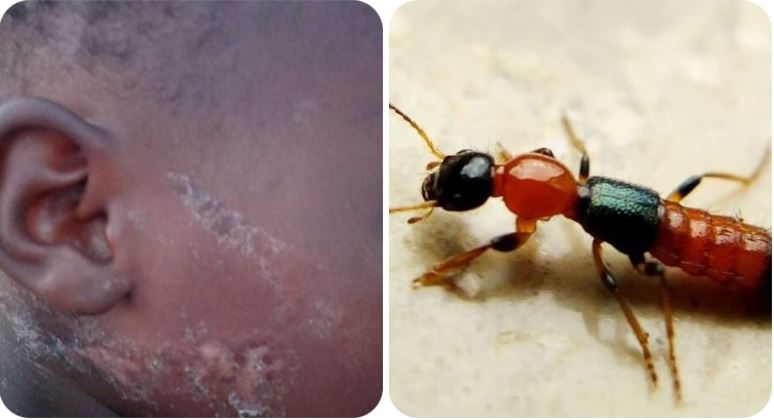 The Kisumu government has issued a public health alert to locals in Dunga and Paga beach areas within the County regarding a Nairobi fly infestation, with 28 cases tracked and managed.
The Kisumu government has issued a public health alert to locals in Dunga and Paga beach areas within the County regarding a Nairobi fly infestation, with 28 cases tracked and managed.
The Nairobi Fly thrives during increased rainfall, and is known to inhabit decomposing wooden materials along the beach and areas of poor sanitation, such as crudely dumped waste.
The Kisumu county department of health warned locals about a significant infestation of Nairobi flies in the vicinity.
According to Director of Public Health Fred Olouch, the Nairobi fly contains a toxin called pederin. When squeezed and released on the skin, it causes irritation, leading to intense itching and blistering known as pederus dermatitis.
Following the upsurge in rainfall, Oluoch noted an increase in cases reported at the two beaches, with most people experiencing skin blisters on the neck accompanied by intense itching.
Also Read – Nairobi Fly or Narrow Bee Fly? This is the Correct Name
“So far 28 cases have been tracked and managed. Case management is supportive with the use of topical steroids or moisturizing agents. If severe cases then antibiotics too could be prescribed,” the county official said.
The Director added that, in terms of prevention measures, members of the public are requested not to squeeze the Nairobi fly when in contact with the skin and instead blow it away. He noted that continuous health education is ongoing by Public Health Officers across the area.
The county health department, through their official Facebook page, also urged locals to take immediate action following the alert to mitigate the spread of diseases and discomfort caused by the infestation.
“This is to Maintain proper sanitation practices, including regular disposal of garbage, cleaning of drains, and covering food items,” the alert read.
Additionally, locals have been advised to use insect repellents, install screens on windows, and wear protective clothing to prevent bites and exposure to these flies. Furthermore, they have been urged to remain vigilant and report any sightings or concerns to local health authorities or call the toll-free number 0800720575 for assistance.








